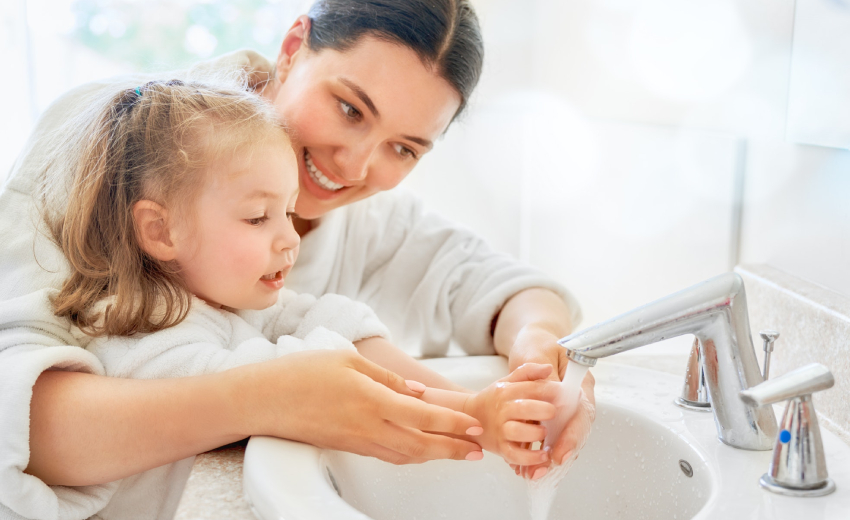
Every day, pathogens come in contact with children.
Hand washing properly can help prevent the spread of a variety of illnesses, from the common cold to much more serious infections like hepatitis A. Handwashing is simple, inexpensive, and effective, and it can help you in kids childcare and avoid sick days and medical visits!
Here are some tips on how to properly wash your hands:
Hands should be washed in warm water.
Use soap & lather for around 20 seconds, or roughly the time it takes kids to sing “Happy Birthday” twice.
Take care to wash between your fingers, under your nails, and around your wrists.
Rinse well and pat dry thoroughly with a towel.
The following are some things that parents can do to assist their children in staying healthy:
Teach children how to properly wash their hands.
While teaching young children how to wash their hands, keep the following in mind:
Show as to how to wash your hands; young toddlers learn best by seeing and doing rather than hearing.As your child practices the right hand washing techniques, explain each one at a time.
Hand washing training should be supplemented with stories about germs & hand washing, as well as looking at illustrations of germs and pointing out only when idols wash their hands. Hand washing will be reinforced through other interactive activities.
In these situations, remind youngsters to wash their hands:
- Before you consume or cook,
- Following a toilet visit,
- Sneezing, coughing, or blowing one’s nose is followed by sneezing, coughing, or blowing one’s nose.
- Following a thorough cleaning of the house,
- After interacting with animals or pets,
- After returning home from school and playing in the yard
- Prior to and following visits to or care for sick friends or family
Wash your hands with the children and provide a good example.
Because your children may not always witness what you do, talk about it! Declare why and when you will wash your hands, or discuss what you touched and also how you cleansed your hands afterward.
Carry hand sanitizer with you in case you don’t have access to a sink or soap.
Even though youngsters are aware of how to wash their hands and they may require reminders. Make handwashing norms & routines, including washing before meals & after using the restroom, to prevent the transmission of germs.


